Everything you need to know Before you go
Passports and visasThe times they are a changing. People from most countries used to need only a valid passport to enter and exit France. No other documents were necessary for visitors remaining in France for less than 3 months. New rules coming into force in 2023/2024 aimed at increasing security at EU borders will now affect all non EU citizens entereing the Schengen Area.Read about ETIAS and EES here. It is mandatory in france to carry some form of identification at all times. If you lose your passport, the nearest U.S. consulate will issue a 3-month temporary replacement. CustomsTravelers from countries outside the European Union must declare certain articles when entering France. Duty and import taxes must be paid on items not for personal use that individually or collectively exceed €430 in value if arriving by plane or ferry or €300 if arriving by car, train or other means. The following are forbidden or subject to strict control: drugs, radioactive materials, firearms, plants, and ivory. Be sure to have prescriptions handy to authenticate any controlled substances. Sums over €10 000,00(ten thousand) whether brought into or taken out of France must be declared to customs.This can be done online in advance Douanes Dalia When in doubt, consult the french embassy or Consulate or the customs service in France, tel. +33 1.72.40.78.50. or online in EnglishFrench Customs. |
|||
  |
U.S. and Canadian ConsulatesThe U.S Embassy in Paris is located 2, avenue Gabriel 75008 Paris.(Consular services at 4 av.Gabriel Tel. +33 (0)1.43.12.22.22 There are also U.S. consulates in Bordeaux, Lyon, Marseille,Rennes and Strasbourg. The Canadian Embassy in Paris is located 130,rue du Faubourg,St Honoré 75008 Paris. Tel. +33 (0)1 44 43 29 00 . There are also consulates in Toulouse, Lyon and Nice. |
  |
ClimateFrance has 4 climatic zones: The humid coastal zone to the west of Lille – Bayonne (variable winters, cool to comfortably hot summers); The semi-continental zone of Alsace and Lorraine and the Rhone-Alps region (cold winters, hot summers); The intermediate zone in Paris, the North and central France (cold winters, hot summers); The mediterranean zone in southern france (mild winters, comfortably hot summers) |
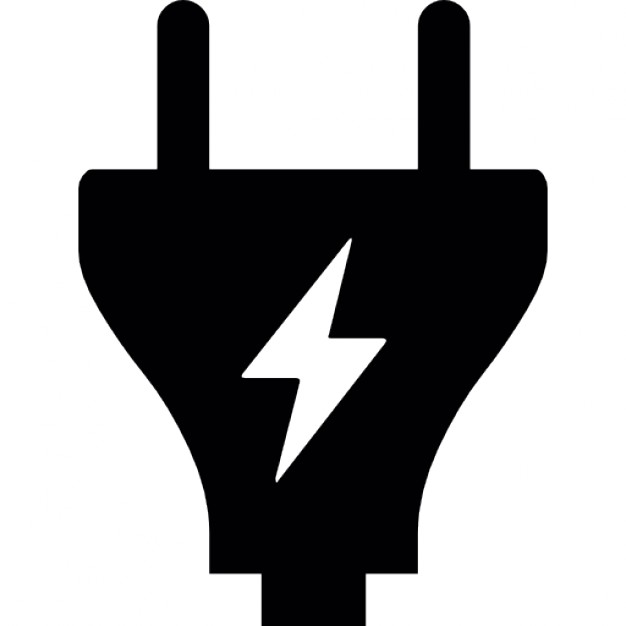  |
Electricity requirementsElectricity in France runs on 220-volt, 50-cycle AC current versus the 110-volt, 60-cycle AC current used in the United States. If you bring electrical appliances, you will need a voltage transformer (already included in most modern appliances) and a plug adapter. Voltage transformers and plug adapters are available at most electric appliances stores.
|
  |
Tourist informationIn Paris: For information about Paris and surrounding areas, Office du Tourisme et des Congrès de Paris – Bureau Hôtel de VilleHôtel de Ville – 29 rue de Rivoli Throughout France: Almost every town in France has a tourist office (office de tourisme or syndicat d’initiative), usually in the city center and easily identified by a blue “I” sign. |
  |
Bringing your pets to FranceTravelers may bring dogs and cats into france. Each family is limited to 3 animals, which must have valid rabies vaccination certificates. |
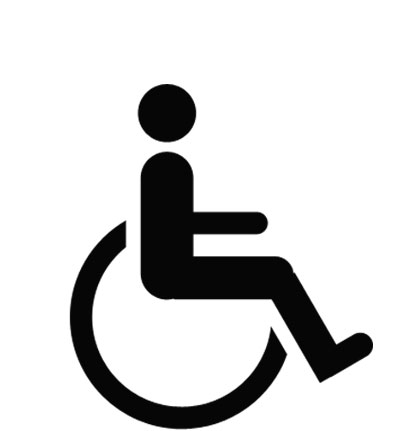  |
People with Disabilities
|
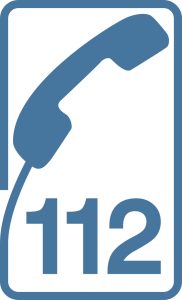
Familiarise yourself with the French Emergency Telephone system.It is different to that of Canada and the United States.There are 14 different French numbers. The best option is to use the Europe wide 112 from any phone including your cell.For more information click here
Arriving in Paris
| Most visitors to france, whether staying in the capital or traveling to the provinces, fly into one of Paris’s two main airports: Roissy Charles de Gaulle(CDG) or Orly (ORY). Paris is approximately 7 hours away from New York City, 11 hours from Los Angeles, 1 hour from London, and between 1 and 3 hours from most European Cities. Most, if not all, flights from the United States arrive in Roissy Charles de Gaulle Airport.
Three other airports serve Paris.Beauvais(85km from Paris),Vatry(145km from Paris) are mostly used for flights with low budget airlines and Le Bourget just 11 km from Paris is used mainly for business flights. Both the main airports have direct bus and train service into Paris, and excellent connections by plane, train or road to other cities throughout france. For instance, there is a TGV (train a grande vitesse or high speed train) station right at Roissy Charles de Gaulle Airport. By taxi, bus or RER (suburban express train), the airports are within one hour (20-50 min., depending on traffic and weather conditions) from the center of Paris. Transportation from Roissy Charles de Gaulle airport
Transportation from Orly airport
|
||||||||||||||||||||||||||||||||||||||||||||||||||||||||||||||||||||||||||||||||||||||||||||||||||||||||||||||||||||||||
Getting around
  |
By carRoads in France: Paris and the main provincial towns and cities are linked by 4,960 miles (8000 kilometers) of well-maintained highways (most with tolls). There are also good roads between the regions of France. Distances are in kilometers (1 km = .62 miles: 1 mile = 1.6 km). Unless a sign tells you otherwise, speed limits are 50 km/hr (31 mph) in towns, 80 km/hr (50 mph) on the Paris peripherique (beltway), 90 km/hr (56 mph) on main roads, 110 km/hr (68 mph) on two-lane roads, and 130 km/hr (81 mph) on highways. Driving in FranceA valid driver’s license is required. Minimum age for driver is 18. Proof of insurance coverage is necessary. Carry your license, insurance certificate, and vehicle registration with you. Seat belts must be worn in both the front and back seats. If you are on a motorcycle, scooter or moped, you are required to wear a helmet. Laws are strictly enforced. TaxisIn Paris and other major French cities, taxi stands are plentiful and easily visible. Rates vary depending on the city or suburb and whether it is day or night: they are displayed inside the car as well as on meters. When called to pick up passengers, taxis add the cost of that journey to the fare. Extra fees for baggage, animals, or a fourth person are routine. Tipping is customary but completely at your discretion: generally 10-15% is acceptable. |
||
  |
By trainFrance’s SNCF national railroad has the most extensive rail network in Europe, and its trains are extremely comfortable and efficient. SNCF’s high speed trains serve more than 150 cities in France and their frequent departure make travel fast and convenient. |
||
  |
By public transportationIN PARIS BusesBus maps and information are available from the Paris Convention and visitors bureau. Bus fare is €1.90; metro tickets and bus tickets are interchangeable. BalabusThe balabus tourist bus, in service sundays from mid-april to the end of September, stops at selected rectangular bus stops (marked Bb) near the main Paris tourist sites: Gare de Lyon, St-Michel, Musee d’Orsay, Louvre, Concorde, Champs Elysees, Charles de Gaulle-Etoile, Porte Maillot and Neuilly. The fare is €1.90 (metro tickets may be used). BatobusFrom april to October, the city of Paris operates a boat service on the Seine river called Batobus, with stops at the Eiffel Tower, Musee d’Orsay, St-Germain-des-Pres (Quai Malaquais, on the left bank, opposite the Louvre), Notre Dame, Hotel de Ville, Louvre, and Champs Elysees. Cost: for one stop, for each additional stop, for an all-day pass ( for children under 12); for a 2-day pass ( for children under 12). TRANSPORTATION IN OTHER CITIESLyon, Lille and Rouen have good subway systems with stops at major tourist sites. Cities throughout the country have efficient bus service. Maps and information are available at local tourist offices. |
||
  |
By planeThe fastest way to get around France is by plane; an average flight lasts one hour. Air France, Air Liberte, AOM, and other regional airlines offer domestic flights. Reservations can be made in the United States, Canada, or in France. airports are often beyond city limits, but are well served by shuttle services. Senior discounts, for those of age 62 or over, of up to 10% are available in all classes of domestic flights; proof of age is required. Youth or student discounts are also available on many domestic flights – inquire when making reservations. Air France: www.airfrance.com |
||
Money matters
  |
BanksBanks are usually open weekdays 9am to 4:30pm. In many cities outside of Paris banks close an hour or two at lunchtime. Most Paris banks are closed Saturdays and Sundays: Provincial Banks are often Saturdays and closed Sundays and Mondays. ATMsATMs often have the best exchange rates. Virtually all ATMs in France take MasterCard and Visa, and many are linked to the Cirrus and Plus Systems. American Express has ATMs in major cities also. Note: Most French ATM keyboards have numbers only, so if your PIN contains letters, make note of the number equivalents prior to leaving home. Four and Five-digit PINs are acceptable in France. ExchangeBanks and change bureaus generally charge at least a 1% commission on currency exchanges; those charging no commission often use very unfavorable exchange rates. Traveler’s checks are safe, but many banks charge a service fee to cash them, and not all hotels, restaurants, and shops accept them for payment, even if they are in French Francs. Credit CardsCredit card are accepted in most hotels, restaurants, stores and shops; the exchange rate is favorable. For information or to report lost cards, 24-hours-a-day, 7-days a week: Euro card-MasterCard, Tel. 01.45.16.65.65;Visa Tel. 08.36.69.08.80 ;or call collect to the United Sates 410-581-3836. Diner’s Club, Tel 01.49.06.17.17 (customer service) or 01.49.06.17.50 (lost or stolen cards). American Express, Tel 01.47.77.70.00 (customer service) or 01.47.77.72.00 (lost or stolen cards). The EuroThe European Union’s common currency, the Euro, officially came into existence in January 1999, and is valid in 19 of the 27 member states.TippingAlmost all restaurants include tax and a 15% service charge (service compris) in their prices. If a meal or service has been particularly good, leaving another €2 ( or 2-3%) is customary, as is leaving the waiter the small change from your bill if you want pay cash. If service is not included (service non compris) a 15% tip is appropriate. In hotels, tip porters €2 for each bag and chambermaids €2 a day. Taxi drivers should be given 10-15% of the metered fare. Tip hairdressers 10%, assistants 5%. Small tips of around €2 are reasonable for cloakroom and restrooms attendants, ushers and museum tour guides. It is standard practice to tip tour guides and bus drivers after and excursion, generally €4 to €6, depending on the level of satisfaction. Tax free shoppingNon-European Union residents who stay in France or the rest of the European Union (EU) less than six months can get a refund of the value-added tax (VAT, or TVA in French) .This is not a complicated process but must be done at the time of purchase by the shop. |
||
Staying in touch
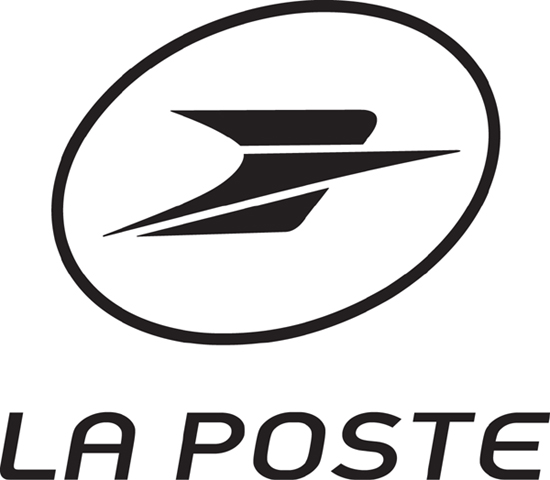  |
Post officesPost Offices are marked La Poste and are open from 8 am to noon on Saturdays. In smaller towns, weekday hours may be 9 a.m to 12p.m and 2 p.m. to 6 p.m. In addition to normal services, major post offices can cash or send international postal checks or money orders, and have fax, telex and telephone facilities. In Paris, the main post office at 52, rue du Louvre is open 24 hours. Stamps can also be purchased at tabacs, hotels and some newsstands . For additional information, see www.laposte.fr.Mailboxes in France are yellow. They are easy to find in public places. TelephonesIf you need to phone, Bouygues (pronounced bweeg) have a prepaid sim which is sent by email and scanned onto your phone by a qr code. It provides 20gb data and €25 call credit(50 minutes for US and Canada cell/landlines…100 minutes for UK landlines 78 minutes for UK mobiles). |
||
French TV in the USA
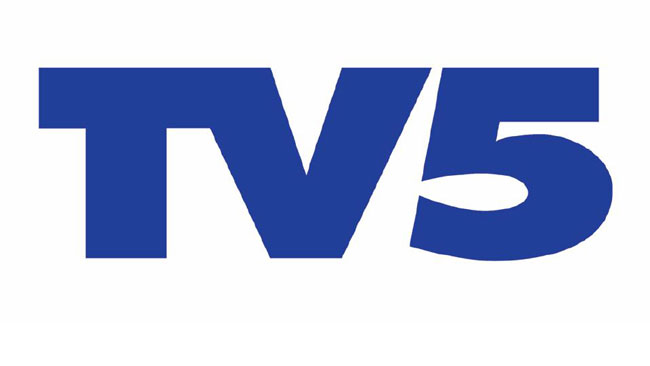  |
The global French-language television network, TV5 is available in the United States via satellite on the DISH Network. It is also available on cable in Miami, Boston and Lynchburg, VA., and will soon be in other markets also, including New York, Los Angeles, and San Francisco. TV5 offers 24 hours of programming from francophone countries around the world featuring movies, talk and variety shows, and new programs. TV5 information:
Tel 888-902-5322 France 2 news also broadcasts its evening news in New York (at 7:00pm EST on channel 25); Washington, DC; Chicago; Miami; St Paul; New Orleans; Boston; Salinas and Los Angeles; Denver; McLelland; and Saint-Louis. www.france2.fr |
||







